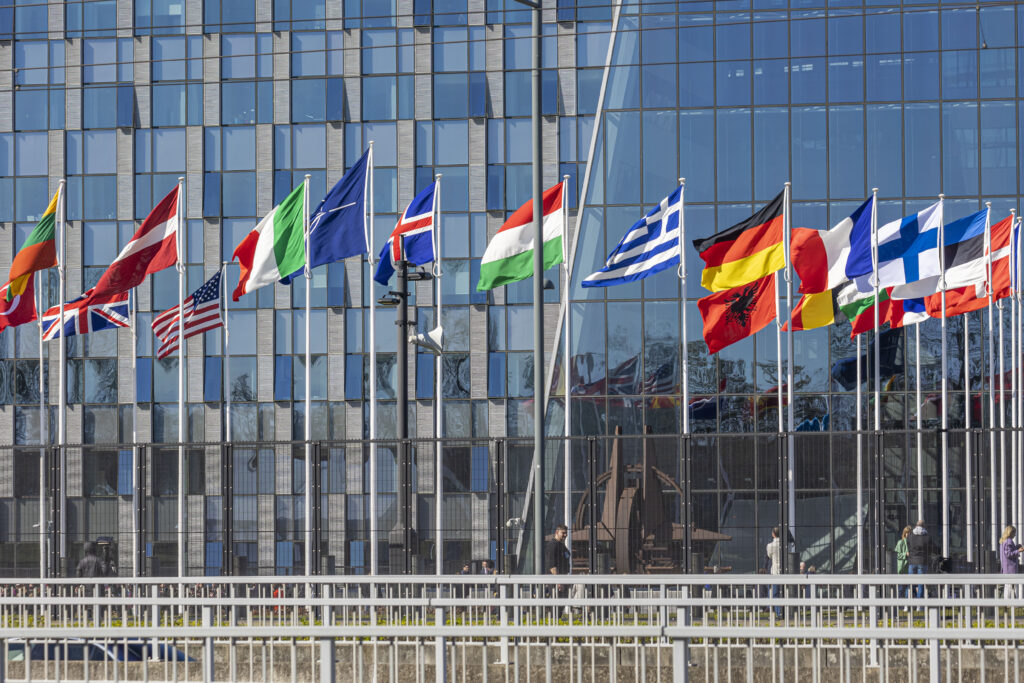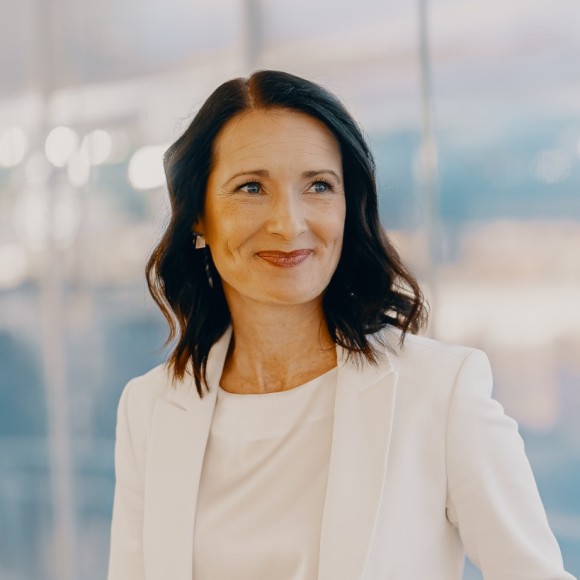Why U.S. investor interest is growing in Finland

Some of the biggest names in venture capital and start-up companies from around the world are set to descend on Finland on November 30 for the annual Slush investment conference. Slush boasts it is one of the biggest global events where start-ups looking for funding and investors looking for the next ‘big thing’ come together.
Finland is a natural setting for this event: the market raises the Nordic region’s second-largest amount of venture funding. Finnish companies in 2022 raised $2 billion, according to Dealroom.
Anne Horttanainen, CEO of the Finnish Venture Capital Association, said, “The Finnish VC market has developed very rapidly over the last five years. The number of VC investors has doubled in the past five years, yet each player has their unique playing field. The industry has also rapidly internationalized. VC investors’ returns have also been exceptionally good compared to European standards.”

Finnish start-up successes include gaming companies Rovio and Supercell and food delivery platform Wolt, which was acquired by DoorDash in 2022.
U.S. Investor Interest
Jonas Dromberg, Founder and Principal at Revalence Ventures, a Stockholm-based investor, said Finland has a strong legacy of engineering and design, which is reflected in today’s start-ups.
“The Finnish VC market relies heavily on the engineering legacy of Nokia and the design heritage of Alvar Aalto,” Dromberg said. “The design heritage can be seen in the success of the country’s gaming industry and some consumer verticals such as delivery start-up Wolt. The main success factor for both are their UI/UX [user interface and user experience], and world class product design that can be matched only by luminaries such as Apple.”
In addition to engineering and design, Finland is increasingly becoming known for defence technologies following its accession to NATO earlier this year, and because it shares a border with Russia. That makes it an interesting market for US investors.
“The emerging uniqueness of Finland will probably be connected to the ongoing shift in the world’s geopolitical powers and Finland’s recent entry into NATO. Controlling more than half of NATO’s border with Russia, Finland has a special sense of urgency when it comes to hard defence technologies,” Dromberg said.
Foreign investors already play a big role in funding Finnish early stage companies: international VCs funded 50% of early stage funding in Finland between 2017 – 2022, with 36% coming from domestic investors, according to Dealroom.
Horttanainen at the Finnish Venture Capital Association says Finland has clear attractions for international investors: “Finland is known for its innovative technology solutions, startups and its highly educated workforce. Many foreign investors are looking for new and promising technology and innovation-driven companies, and Finland provides these opportunities.”
Slush!!!
Speakers from international start-ups and venture capital firms dominate Slush’s agenda this year. Speakers work for companies including Deel, Discord, Doordash, Duolingo, Slack, Stripe, and Tesla. Investors slated to speak are a mix of regional and international firms including Accel, Benchmark Capital, EQT, Norrsken VC, Pear VC, Sequoia Capital, Softbank Vision Fund, Spero Capital and others.
International firms, particularly from the US, support the Finnish start-up market because domestic investors haven’t been able to bridge the gap between the funding needed by local companies and what US investors and corporates can offer, Dromberg says. Finland is now firmly in the sights of US companies, and vice versa.
Tesla is reported to be sourcing stainless steel panels for the exterior of its new EV truck from Finnish company Outokumpu, which has worked to accommodate the electric vehicle’s unconventional design, according to Bloomberg.
In an example of Finland exporting its expertise to the US, Nokia recently announced it will manufacture fibre-optic broadband components in Wisconsin, which will be used in the US’s Broadband Equity, Access and Deployment program to extend broadband to new communities. The endeavour is supported by the White House, and US Vice President Kamala Harris was quoted in Nokia’s announcement.
The NATO Effect
These business agreements would likely not have happened if Finland wasn’t a member of NATO, Dromberg says. The Finnish start-up ecosystem is supported locally by state-owned incubators at funding stages before international investors would get involved, a construct seen across the Nordic region.

Many Finnish early stage companies have had support from Tesi, formally Finnish Industry Investment Ltd, a state-owned investment company that invests in venture capital, private equity funds and directly in early stage Finnish growth companies. Tesi manages almost €500 million in assets of its Finnish and international partners, and has a particular focus on finding and funding solutions to global challenges. US and other international VCs often come into later funding rounds.
Pia Santavirta, Tesi’s CEO, has said: “Channelling international capital into the growth of Finnish companies is our special focus. For example, the European Investment Bank invests in Finnish companies through the financial instruments jointly built but managed by Tesi. Now, we’re also an investor in NATO’s Innovation Fund, from which Finnish tech companies can seek financing.”

Recent Tesi investments include Flow Technologies, a building and technology group that improves flow of construction and reduces the environmental footprint; Algorithmiq, which develops quantum computing algorithms and solutions for drug development and discovery; and Solnet Green Energy, which provides and services smart solar energy solutions.
While early stage venture capital investment in Finland was flat in 2022 from a year earlier at $2.0 billion, there have been some notable recent early-stage investments in the market.
Ori Solution Oy, a clean tech company that provides flow-to-electrical clean energy technology for wind, hydro, and waste flow environment, last year raised €250,000 in pre-seed capital. The fast-growing renewable energy market is projected to be more than US$ 2 trillion by 2032, with CAGR of 8.50% from 2023 to 2032, according to Precedence Research.
Horttanainen says: “In a nutshell, it could be said that the Finnish VC market is strong because we have excellent target companies and high-quality VC investors.”
Some additional recent Finnish start-ups, according to Wired, include:
- IQM, which makes quantum computing hardware using superconducting technology
- Gubbe, which makes eldercare cool by connecting families of elderly people with students who visit and help with housework and other tasks
- Infinited Fiber, which takes textile waste and turns it into new textile fibres that look and feel like cotton
- Flowrite, a browser extension that turns bullet points into full email text using OpenAI
- Enfuce is payments provider, which offers a calculator to enable users to track their carbon footprint based on their payment transactions
- Solar Foods, which aims to create protein from microbes using fermentation
- Aiven, which builds cloud-based data infrastructure
- Varjo, a virtual and mixed-reality headset manufacturer
- Swappie, a second-hand iPhone marketplace that also refurbishes the used phones
- Sulapac, which makes sustainable packaging.
For further information:
Slush: https://slush.org/
Finnish Industry Investment Ltd (Tesi): https://tesi.fi/en/
Finnish Venture Capital Association: https://paaomasijoittajat.fi/en/media/
By Juliana Wheeler, a US-based communications consultant and freelance journalist. Editor: Marybeth Sandell
